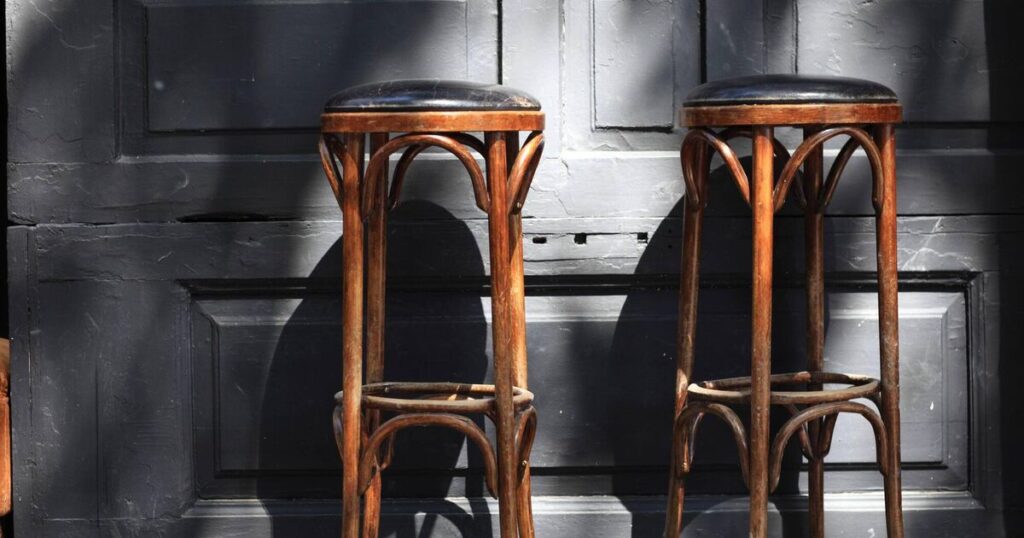One in four Irish pubs have closed over the past two decades, equating to two premises a week permanently shutting their doors, with rural Ireland bearing the brunt of this decline.
A concerning new report from the drinks industry reveals that 2,119 pubs were lost between 2005 and last year. Projections indicate up to 1,000 more closures within the next decade as the sector grapples with escalating costs, economic uncertainty, and evolving consumer preferences.
The report, compiled by Drinks Industry Group Ireland (DIGI), highlights that rural Ireland has been disproportionately impacted. One in every three pubs across Cork, Limerick, and Offaly have ceased operations since 2005.
Analyzing data from the Vintners Federation of Ireland’s register of alcohol licenses, the report shows a significant decrease in Cork, from 1,221 pubs in 2005 to 822 last year.
Limerick experienced an even steeper decline, dropping from 478 pubs in 2005 to just 300 last year.
Dublin, in contrast, saw the smallest national decline, decreasing from 786 pubs in 2005 to 773 last year, emphasizing the more pronounced impact in rural counties.
Last month, the reported that 50 pub premises are currently for sale across Cork city and county, with one estate agent suggesting that at least 10 are no longer commercially viable.
“For countless villages and rural areas, the pub is the primary hub for social gathering, the place where neighbours connect and local events are hosted,” said DIGI CEO Donal O’Keeffe.
“In counties like Limerick, which has lost well over a third of its pubs, and seven other counties where over 30% of premises have vanished, this trend has reshaped communities and promoted social disconnection.”
Economist Dr. Anthony Foley, the report’s author, suggests that the Government could immediately improve commercial viability by reducing excise duty by 10%.
“With Irish alcohol consumption having decreased to average EU levels, and likely to continue declining, it’s no longer justifiable for pubs to face the second-highest excise rates in Europe.”
“This is compounded by a substantial 23% VAT rate. The Government must act now before it’s too late.”
The report advocates for a 10% reduction in excise duty on alcohol in Budget 2026, arguing it would provide immediate relief to struggling businesses and demonstrate a commitment to the sector’s future viability, given the closure of a quarter of pubs in the last two decades.
The report identifies various factors contributing to pub closures, some of which are interconnected. Low commercial returns, for example, discourage younger family members from taking over from retiring or deceased publicans.
“These factors include low business volume, weak commercial sustainability, lack of succession planning upon retirement or death of pub operators, regulatory changes such as stricter drink-driving laws and enforcement in conjunction with inadequate public transport, population shifts and distribution, evolving consumer habits and expectations, changes in the alcohol market, more appealing alternative economic activities and income opportunities, and asset prices for pub licenses being used to facilitate the opening of new off-licenses in supermarkets, convenience stores, discounters, and petrol stations,” the report explains.
DIGI emphasizes the cultural and social significance of Irish pubs, highlighting them as “iconic symbols of Irish culture, attracting thousands of tourists annually and significantly boosting the tourism and hospitality sector.” It stated:
These concerns from DIGI are reinforced by data from other sources. Changing consumer trends are evident in recent data from the CSO’s retail sales index.
Bars experienced a 6.8% decrease in sales volumes over the past year, the most significant annual decline of any industry sector.
The DIGI report places excise duty firmly under scrutiny as the Government prepares the next budget. It notes that the State collects an average of €1.67 from a pint of stout and €17.01 from a bottle of off-license whiskey.
“In Ireland, a 70cl bottle of Irish whiskey sold at an off-license is subject to an excise duty of almost €12,” said Mr. Foley. “In an Italian off-license, the same bottle of Irish whiskey attracts an excise duty of just €2.90.”
“For a French visitor to Ireland, a standard glass of wine that would attract an excise duty of just 1 cent in France is levied with an additional 80 cents excise duty here, while 15 EU countries impose no excise tax on wine at all.”
“A reduction in the excise rate, as proposed by DIGI, would immediately boost the viability of the Irish pub, particularly in more remote, rural areas where employers are often difficult to find,” he concluded.


